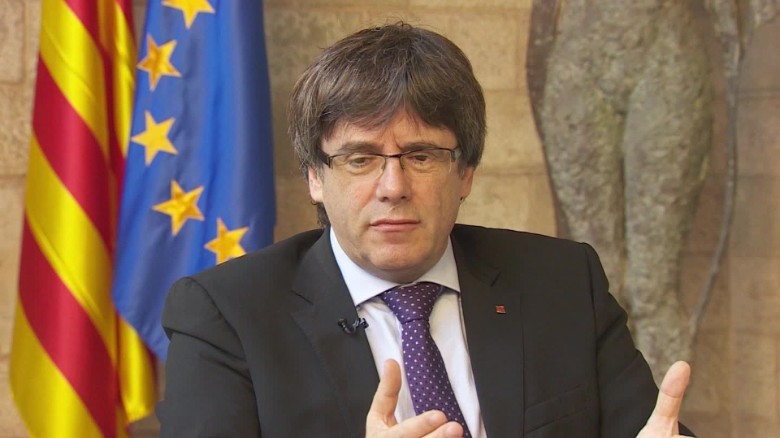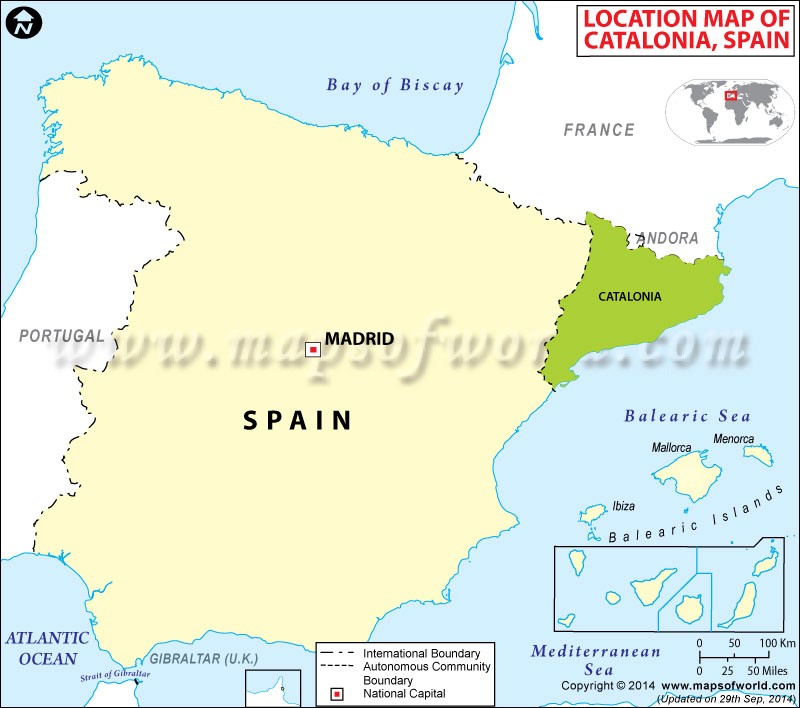Voters send message to Madrid
December 28, 2017 | Expert Insights

The regional elections in Catalonia was held on Thursday 21 December 2017. This was conducted to elect the leaders for the 12th Parliament of the Autonomous Community of Catalonia. All 135 seats in the Parliament were up for election.
The secessionist parties are on track to take victory.
Background
Catalonia is an autonomous community of Spain located on the northeastern extremity of the Iberian Peninsula. It is one of Spain's eight communities which are designated as a nationality by their Statute of Autonomy. From the late 1950s through to the early 1970s, Catalonia saw rapid economic growth, drawing many workers from across Spain, making Barcelona one of Europe's largest industrial metropolitan areas and turning Catalonia into a major tourist destination.
A vote for the region’s secession was held on October 1st, 2017. Out of 5.3 million registered voters in the region, more than 2.2 million people voted, according to Catalan officials. Just under 90% voted in favor of secession. Political crisis marred by violence has since erupted in the region. Spain has rejected Catalonia’s declaration of independence. The government has also removed Carles Puigdemont, the Catalan leader. In addition, it was revealed that the Spanish court was considering jailing Puigdemont and other leaders of the secessionist movement.
In November the crisis escalated as eight of the Catalan ministers who had been removed by the main government were remanded in custody by a Spanish high court judge over the region's push for independence. On November 5th, 2017, Carles Puigdemont and four of his associates turned themselves in to Belgian police. The Spanish authorities had issued an arrest warrant for rebellion and sedition.
Analysis

The regional elections in Catalonia was held on Thursday 21 December 2017. This was conducted to elect the leaders for the 12th Parliament of the Autonomous Community of Catalonia. All 135 seats in the Parliament were up for election.
In a blow for Madrid, the secessionist parties have been projected to win most seats in Parliament. According to early estimates, 80% of eligible voters in Catalonia cast the vote. This is a record for the region. The snap elections had only been triggered by Prime Minister Mariano Rajoy when Madrid took control of the region in October.
Puigdemont addressed the Catalan citizens after the elections and claimed that it was time to “restore democracy.” He said, “Now we need to restore democracy, restore our legitimate government, our freedoms. We need to free all those people who are still in prison, but should not be. The prescription that Mr Rajoy throught would work has failed. Things are even more positive for the pro-independence parties today, because today we have one more seat. We will have more freedom in parliament than we had before. As the legitimate president of Catalonia, I say: Mr Rajoy’s prescription is not working. If he keeps applying the same formula he will keep failing. He needs to change. We have to find solutions. It is time not just for Mr Rajoy but for many other people to realise this.”
From the 135 seats that were in play for the election, the pro-independence parties Together for Catalonia (JxCat), Republican Left of Catalonia (ERC) and Popular Unity (CUP) were on course to win a total of 70 seats. Thus, giving them a majority.
The Popular Party (PP) of Prime Minister Mariano Rajoy won only 3 seats. This is a significant drop from the 11 seats it held earlier.
The European Commission has maintained earlier that Catalonia was an internal matter for Spain and noted it would not weigh in. This position remained unchanged after the election as well. "Our position on the question of Catalonia is well known and has been regularly restated, at all levels. It will not change," commission spokesman Alexander Winterstein told AFP news agency. "In relation to a regional election, we have no comment to make," he added.
Assessment
Our assessment is that the voters have reacted to Madrid’s actions and have given the national government a resounding response. The election results have ensured that the secessionist movement is unlikely to fade away. For now, the ball is back in the nation’s Supreme Court.








Comments